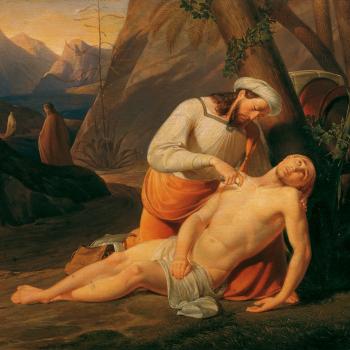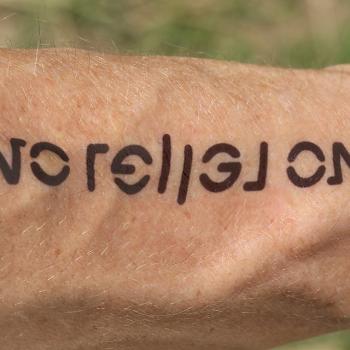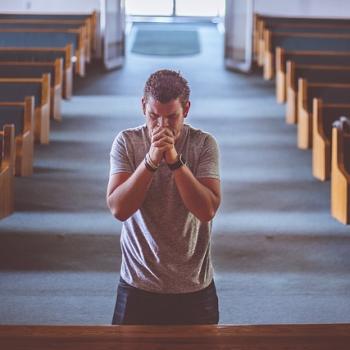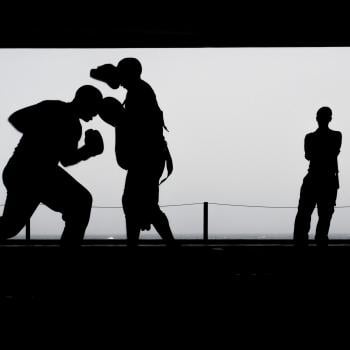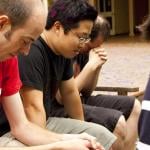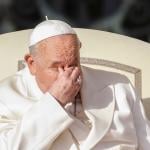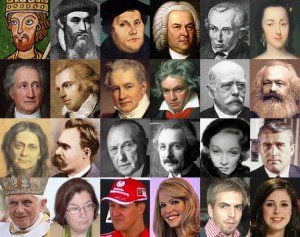 The United States, as is often said, is a nation that rests of ideas rather than ethnic identity. Immigrants wanting to become citizens must pass a test on the Declaration of Independence, the Constitution, and civic participation.
The United States, as is often said, is a nation that rests of ideas rather than ethnic identity. Immigrants wanting to become citizens must pass a test on the Declaration of Independence, the Constitution, and civic participation.
But other countries are based on ethnic and cultural identity. How can they integrate immigrants from other societies? What, exactly, is the cultural identity these would-be citizens need to integrate into? That can be hard to define.
The German interior minister Thomas de Maizière has taken a crack at it. He has proposed 10 principles of Germany identity.
He is getting lots of criticism for this from rivals to his Christian Democratic party, headed by Angela Merkel. The left is accusing him of being anti-Muslim, nationalistic, too-Christian, etc.
There have been news stories about this, but they don’t give the 10 principles! I have found them in a very bad translation and offer them to you after the jump.
What do you think of these? Do they confuse what “should be” with “what is”? Do they present the dark side of German history as if it isn’t really German after all, or does it handle that part effectively? Does this list give a basis for an “enlightened patriotism,” or is it a new version of the German nationalism that gave us World War II? Do these describe “modern” German culture or do they apply also to the German culture of the past that has made positive contributions to Western civilization? Do any of these apply also to German-Americans? Is this kind of exercise helpful or futile?
Could there be a similar list defining the America identity or would that be an offense against American diversity? If there could be such a list of American cultural principles, what might that look like?
From Thomas de Maizière, BMI – Nachrichten – Leitkultur für Deutschland – Was ist das eigentlich?:
- We attach importance to some social habits, not because they are content, but because they are expressions of a certain attitude: We say our name. We give each other a hand. In demonstrations, we have a prohibition on manning. “Show face” – this is the expression of our democratic coexistence. In everyday life, it is important to us whether we look in a friendly or a sad face with our conversation partners. We are an open society. We show our face. We are not Burka.
- We see education and education as value and not just as an instrument. Students learn – sometimes to their incomprehension – what they do not need much in later professional life. Some claim, therefore, that school should be more prepared for later occupations. But this does not correspond to our understanding of education. General education has a value in itself. This awareness is shaping our country.
- We see performance as something everyone can be proud of. Everywhere: In sports, in society, in science, in politics or in business. We demand performance. Performance and quality bring prosperity. The idea of performance has made our country strong. We also provide assistance, have social security systems and offer help to people who need help. As a country we want to do it and as a country we can afford it. We are also proud of this achievement.
- We are heirs of our history, with all its ups and downs. Our past is shaped by our present and our culture. We are the heirs of our German history. For us, it is a struggle for German unity in freedom and peace with our neighbors, the convergence of the countries into a federal state, the struggle for freedom and the commitment to the deepest depths of our history. This also includes a special relationship with Israel’s right to exist.
- We are cultivation. Hardly any country is as shaped by culture and philosophy as Germany. Germany has greatly influenced the cultural development of the whole world. Bach and Goethe “belong” to the whole world and were Germans. We have our own understanding of the importance of culture in our society. It is self-evident that music is played at a political ceremony or at a school anniversary. At the opening of a large concert hall – as a matter of course – the Federal President, representatives from government, parliament, jurisprudence and society are on the spot. Hardly a country has so many theater per inhabitant as Germany. Every county is proud of its music school. Culture in a broad sense, our gaze on it and what we do for it is also ours.
- In our country religion is putty and not a wedge of society. The Churches with their tireless dedication to the society stand for this in our country. They stand for this cement – they connect people, not only in faith, but also in their daily lives, in day-care centers, in schools, in old people’s homes and active community work. Such a putty for our society arises in the Christian church, in the synagogue, and in the mosque. We recall 500 years of Reformation this year. For the separation of the Christian churches has paid Europe, Germany has a high price. With wars and decades of conflict. Germany is characterized by a special state-church relationship. Our state is neutrally neutrally, but friendly to the churches and religious communities. Church holidays shape the rhythm of our years. Church towers characterize our landscape. Our country is Christian. We live in religious peace. And the basis for this is the absolute primacy of the law over all religious rules in the state and society.
- We have in our country a civil culture in the regulation of conflicts. The compromise is constitutive of democracy and our country. Perhaps we are more a consensus-oriented society than other Western societies. The majority principle is the protection of minorities. We are disturbed by the fact that some things have slipped. For us, respect and tolerance are important. We accept different forms of life, and anyone who rejects this is outside a great consensus. Violence is not accepted socially in demonstrations or elsewhere. We do not associate ideas of honor with violence.
- We are enlightened patriots. An enlightened patriot loves his country and does not hate others. We Germans can be. “And because we improve this land, we love and protect it, and the dearest we may seem to us, as you do to other peoples,” it is said in the pedophy of Bert Brecht. Yes, we had problems with our patriotism. Sometimes he became nationalism, sometimes many did not dare to confess to Germany. All this is over, especially in the younger generation. Our national flag and our national anthem are a self-evident part of our patriotism: unity and right and freedom.
- Our country had many chances to cope with. Some of these were associated with basic decisions. One of the most important is that we are part of the West. Culturally, mentally and politically. NATO protects our freedom. It connects us with the USA, our most important external European friend and partner. As Germans we are always also Europeans. German interests are often best represented and realized through Europe. Conversely, Europe will not prosper without a strong Germany. We are perhaps the most European country in Europe – no country has more neighbors than Germany. The geographical position has shaped us for centuries with our neighbors, formerly in the difficult, now in the good. This influences our thinking and our politics.
- We have a collective collective memory of places and memories. The Brandenburg Gate and the 9th of November, for example, are part of such collective memories. Or win the world championships. Regional is added: carnival, folk festival. The native roots, the market places of our cities. The affinity with places, smells and traditions. Country-minded mentality, recognizing the sound of the language, belongs to us and shape our country.
[Read de Maizière’s accompanying essay. . .]
Illustration “German Mosaic” by Stolichanin [CC BY-SA 3.0 (http://creativecommons.org/licenses/by-sa/3.0)], via Wikimedia Commons







